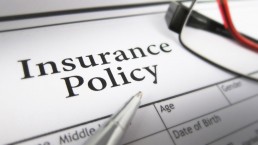How to Promote your E-commerce Business as we Head into a New Year
How to Promote your E-commerce Business as we Head into a New Year
These days e-commerce businesses make up a large portion of the purchases made by Canadians and international consumers. With that being said, just as they offer a range of unique attributes, in turn they require a unique set of safety protocols. Of course, one important security measure is to have the proper insurance in place for these specific business needs.If you are an e-commerce business owner, let’s take a look at how you can promote your business, while also maintaining its safety as we head into the New Year.

Advertising
Of course, driving people to your website is a very important first step that can set the tone for this entire process. There are various methods of advertising you can use for your e-commerce business, such as posting on social media sites as well as participating in online events and virtual gatherings, which assist getting your name out there. Google Ads are another popular option. These types of online Ads can really help when it comes to search engine rankings as they have the potential to increase the traffic on your site.
With online holiday shopping ramping up this time of year, the nature of the online advertising that you use to promote your products and services can certainly contribute to the success of your business well into the next year.
Creating Engaging Content
Another key method of gaining momentum for your business is establishing content that will pique consumer interest. Not only can you include information on your site that is unique to your brand and products and/or services, it is also helpful to try and put yourself in the ‘shoes’ of your potential clients and identify what they really want to see and hear, and feel connected to.
Through the use of engaging content that can range from pictures, videos, and other graphics, this type of imagery can help you continue to gather and sustain a strong customer base.
Building Client Relationships and Trust
As an online retailer, it is also likely that you are looking for new and innovated methods of growing your business. However, there is still something to be said for the tried and true method of staying in touch with your clients through email. Continuing to manage your email lists has the potential to hold the attention of your existing clients, and by building and maintaining those relationships, you can promote your products and services at the same time.
Trust is another important element of e-commerce businesses and perhaps can be a little more challenging as you miss out on the in person connections that can help establish customer relationships.
With that said, one significant step you can take to build trust is to communicate with your online client base by making them aware of the security measures you have in place to protect them. It is important for your customers to know the safety of their personal data is being protected – and in turn this can greatly contribute to the level of trust and client relationships you build and maintain over time.
Being Aware of E-commerce Fraud
Even if you are doing everything you can to promote your online business, if you are not taking the necessary precautions to protect yourself and your clients from e-commerce fraud, the overall success of your business is likely to suffer.
Some ways you can protect your business, include taking steps to secure your website data and customer transactions. In addition to current security, it is also important to stay up-to-speed on the various fraud trends that can affect your business.
During the on-going COVID-19 pandemic, there has been an even greater spike in fraud cases. As a result, it is even more important to have the proper protocols in place, so you don’t jeopardize the safety of your online store and livelihood.
Acquire Ecommerce Fraud Insurance
With that being said, another step you can take to protect your business is to have the necessary insurance to cover yourself in the event of issues of fraud, weakened security, and other online retail-related risks.
Not only does having the right insurance allow you to foster an enduring reputation for your business, you can also have more peace of mind that you are protected from a wide range of cyber threats. When all is said and done, in a highly competitive market, your e-commerce business can continue to thrive.
Contact Leaders Insurance today to learn more about the variety of ways we can help ensure your e-commerce business is safe and protected as the New Year swiftly approaches.
3 signs your small business needs commercial insurance
3 Signs your Small Business Needs Commercial Insurance
As a small business owner, you may have started out with an insurance package that at the time, had sufficiently met your needs. However, if you are expanding or altering your business in any way, then it might be time to look at discussing Commercial Insurance policy options with your insurance agent.Here are some signs to help you identify if your small business will benefit from making the move to commercial insurance.

Sign #1 - You Have Purchased New Equipment (and Inventory)
If you have recently purchased some new equipment to operate your business, then it might be a good time to consider moving to commercial insurance. If, for example, you rely on expensive items, these can range from computers to vehicles, as well as many others, then you will want to ensure your insurance adequately covers these costs, should you need to promptly replace them in order to keep your business up and running.
Another important part to this, could also be that you have expanded your range of products and services With a larger inventory than you previously had, additional commercial insurance is likely necessary to ensure you also have enough coverage to replace these items, in the event there are any major losses.
With equipment and vehicle insurance being key elements of operating your business, having this type of commercial insurance in place may be the right move for you at this time.
Sign #2 - You Have Hired Additional Employees
As a small business owner, you may have started out as being the only employee. That said, the time may have come that you now require some additional help and are ready to take on another employee. Whether you are taking on a second employee or increasing your number of employees more significantly, either way, this is an important sign that you should reevaluate your insurance.
For example, worker’s compensation insurance is a commercial insurance option that helps to ensure you have enough coverage to support all of your employees and that you are both protected.
Sign #3 - Your Revenue has Increased
Perhaps you have also experienced an increase in revenue and your business is growing in this area as well. If you are now making a substantially larger amount of money compared to when your business began, then this is also a strong indication that you will want to make an insurance adjustment.
With increased equipment and employee needs, your revenue may also be on the rise and you will want to seek out the best level of insurance coverage that matches the trajectory and evolution of your business.
Bonus Sign #4: You are Moving into a New Business Space
One additional sign that also deserves mention, is whether you have made any changes to your business space. If you have or are thinking about renovating or moving into a larger work space, perhaps even leasing or buying a property, then you will also want to contact your agent. This can be a valuable opportunity to discuss the necessary commercial insurance coverage needed for this type of expansion.
Commercial insurance can cover a variety of unique areas pertaining to small businesses. Therefore, it is important to be aware of these aspects, so that you have the peace of mind that you are fully covered.
If you are ready to expand your small business operations in any way, you can contact our experts at Leaders Insurance to find out more about commercial insurance and what is the most suitable coverage for your business needs.
5 Questions to ask your home insurance agent
5 Questions to Ask Your Home Insurance Agent
As a homeowner, it is important to keep up-to-late on the latest ins and outs of your home insurance policy. You can start by knowing the right questions to ask.Here are 5 questions to ask your home insurance agent.

How do I know if I have enough coverage to replace all of my household possessions?
Naturally, one of the first questions you will have is to find out if you have the right amount of coverage. In the event, you need to replace all of your household possessions, you will then have peace of mind, knowing that all of your insurance needs are covered.
In order to perform an accurate assessment of your belongings, you can take pictures of all of your most valuable items. These items can range from furniture to clothing, from appliances to electronics, and so on. You should also be sure to keep these items in a safe place, not located in your home.
Do I have enough insurance to rebuild my home?
A second inquiry you are likely to ask your insurance agent is whether you have enough coverage to completely rebuild your home. Not only does this include your possessions, it includes the structure, itself.
Additionally, you should also include in this conversation whether your policy covers a range of scenarios in which your home and possessions are lost. For example, if your home and belongings are destroyed due to natural disasters, is this still covered? In fact, it never hurts to ask as this could save you a lot of additional worry – and of course money in the long run.
Under what circumstances do I need Liability Insurance?
An aspect of your home insurance that you will also want to look into is liability insurance. A viable question to ask your agent is what specific kinds of liability coverage you might need as well as how much. For example, in the instance an individual has an accident or is injured while on your property – you could be considered liable.
Another scenario that falls under this category is in the event, your actions or your home itself causes damage to another person’s property. Either way, it is a good idea to check with your agent to see that you have the proper coverage to ensure you are financially protected against these range of situations.
What happens if the value of my home changes?
It can also benefit you to find out whether you may need to adjust your insurance and under which situations, this might be necessary. If you know you will be renovating or increasing the value of your home in terms of any upgrades, such as a pool or hot tub, etc. then your home insurance will likely need to revised to better reflect its current value. An increase in household possessions can also be included in this updated appraisal and your insurance agent can help guide you in making these amendments.
Do I qualify for any discounts?
One last question you shouldn’t be afraid to ask is whether you qualify for any discounts. For example, you may have options to bundle various insurance packages together. For example, you may be able to combine your vehicle and your home insurance into one policy and this could allow you to save on your overall insurance costs as well.
Secondly, if you let you insurance agent know you have additional safety measures in place to protect your home, such as a security system, smoke and sprinkler systems, this may entitle you to a bit of a break on your insurance fees.
In the end, owning a home is a substantial financial commitment. Therefore, being able to turn to your home insurance agent and ask the right questions can help to make this a more positive experience.
At Leaders Insurance, we want you to feel open to asking us the home insurance questions that are on your mind. In turn, we will provide the support you need in order to feel confident in your home insurance policy.
How to Protect your vehicle for winter driving
How to Protect your Vehicle for Winter Driving
The inevitable is coming - winter weather in Canada. While winter temperatures can vary across the country, one thing is for sure, you can still expect at some point to see icy or snowy weather in BC. With that being said, one important step you can take right now is to prepare your car for the winter roads.Here are some specific aspects of car maintenance you can perform in order to protect your vehicle during the winter season.

Washing the Exterior & Interior Regularly
First of all, it is important to wash your vehicle’s exterior on a regular basis. As temperatures drop and icy weather arrives, roads salt will be used to contribute to the safety of our driving. This material, however can also do a number on your car’s paint job. Furthermore, if there are any areas where rust has occurred, then the paint on your vehicle will be even more likely to experience additional damage. It is also recommended that you include a wax job afterwards, as the wax acts as a barrier by deterring the buildup of dirt, mud, water and snow, and of course, salt.
As for the interior, snow, water, and salt can also work their way into the inside of the vehicle and in turn can cause additional wear and tear to your vehicle’s upholstery. In order to avoid causing this type of damage to the interior of your vehicle, it is ideal to clean it regularly and remove any salt and snow before it leaves a deeper stain. For added protection against these elements, you can use rubber, all-weather mats to help keep the interior in good condition throughout the winter months.
2. Installing Winter Tires
Another method of protecting your car during the winter is to consider installing winter tires. While these can be a bit more expensive than other tires, this can also be seen as a bit of an investment in your vehicle and your safety. Not only do these tires help grip the roads in slippery conditions, and you can then also steer and break more effectively. In the end, with winter tires you are less likely to get stuck in deeper snow and yet can have more peace of mind that your vehicle will get you where you need to go – and as safely as possible.
3. Maintaining Wipers and Wiper Fluid
Next on the list is the windshield wipers. While windshield wipers serve an important purpose all year round, they are likely to see a lot more action during the winter time. With that said, it is important to make sure your wipers are in good working order as the last thing you want is to not have them do their job, if you find you are driving in inclement weather.
Another essential protective measure is to ensure you are keeping your vehicle’s wiper fluid topped up. That said, the type of wiper fluid you choose is also important and can depend on the temperatures in your area. However, it is Canada after all, and while we can never know from one moment to another, how mild or how frigid our winters will be, it is none-the-less, a good preventative step to use a wiper fluid that is designed to support colder weather. These steps can ultimately help to improve the safety of your driving as well as protect your vehicle during the winter season.
4. Being a Smart Driver
When all is said and done, even if you do have your vehicle in good working order, it won’t matter if you are not driving smartly. In order to protect yourself and your car during winter driving it is equally important to approach this with safety in mind. For example, when roads are slippery, remember to drive with caution and awareness, and this can include, braking sooner and leaving extra space between the other vehicles and yourself. By being even more alert when driving on wintery roads, this can help protect your vehicle as well as others around you.
When it comes right down to it, a large part of protecting your vehicle and yourself while driving all year round has to do with having the proper insurance. Especially during winter, this can become even more critical.
Feel free to contact Leaders Insurance to find out more about how we can contribute to your approach to safe driving, as well as to help you protect your vehicle while you are out on the roads this winter.
Changes in Insurance Over the Past Year
Changes in Insurance Over the Past Year
Despite recent challenges in the worldwide economy – including fighting the effects of the coronavirus – the insurance industry remains resilient. While many insurers are looking for a way to achieve efficient spending, many also proactively invest in things like enhanced customer experience through digitalization and AI, and alternative product development.In Canada, the insurance market has had a positive impact from the global rise in technology, with more than 60 percent of millennials in Canada believing in the safety of online insurance information. This opens up many possibilities for insurers to focus on a growing market, while taking into account the changing economy and shift in consumer priorities.
Let’s take a look at some of the current trends in Canada’s insurance market.

Changes in Insurance Over the Past Year
Despite recent challenges in the worldwide economy – including fighting the effects of the coronavirus – the insurance industry remains resilient. While many insurers are looking for a way to achieve efficient spending, many also proactively invest in things like enhanced customer experience through digitalization and AI, and alternative product development.
In Canada, the insurance market has had a positive impact from the global rise in technology, with more than 60 percent of millennials in Canada believing in the safety of online insurance information. This opens up many possibilities for insurers to focus on a growing market, while taking into account the changing economy and shift in consumer priorities.
Let’s take a look at some of the current trends in Canada’s insurance market.
Targeting Millennials in Canada
With Generation Y being the largest demographic in Canada, it also represents a large pool of consumers for insurers to target. However, according to KPMG, insurers need to change their approach if they want to target Canada’s millennials. Specifically, the focus should be on flexible insurance products and short-term solutions.
But to do this, data collection requires a complete re-think and this includes privacy protection and data security. The aim is to have real-time data that drives user-specific risk profiles.
Understanding Risk with Data
One key element to the success of insurance companies this year and beyond, is the ability to collect and harness data on Canadians – specifically younger generations. It’s important for insurers to understand how they shift their priorities in order to create products that will support their modern lifestyles.
Chris Cornell, KMPG partner and national insurance sector leader, says, ‘Providing short-term, complementary, and personalised products means that Canadian insurance companies will need much stronger data collection and analysis tools.’ This could also lead to the ability for insurance providers to offer lower premiums while reducing their exposure to claims.
Improved Collaboration and Alliances
The insurance industry is home to a high level of competition and saturated areas such as home and motor insurance especially sees a lot of competitors competing for these markets. This means that to gain an edge, insurance companies need to differentiate themselves.
One way this can be achieved is by forming strategic alliances – which is different from an acquisition or merger. These alliances are common strategy among Canadian CEOs and it represents an arrangement between two providers or organizations to work together on a project while also having the ability to cut ties should it not work for either party.
If you are looking for insurance, Leaders Insurance has you covered. Take the time to get in touch so we can offer you a quote for all your needs.
The Ins & Outs of Home Insurance
The Ins & Outs of Home Insurance
Home insurance, often also called homeowners insurance, is no longer a luxury but rather a necessity. This is not only because it protects your property against theft or damage, but also because almost all mortgage companies require homeowners to have insurance cover.You likely won’t get a home loan or any finance for a residential real estate transaction unless you can prove that you are fully insured.
With the home insurance market in the US worth more than $105 billion, there are certainly a lot of options for homeowners to consider when taking our insurance.
Let’s go to the basics of home insurance and what it provides.

What is Home Insurance?
In short, home insurance can include several types of insurance cover for your property. It can pay to either replace or repair your house and your personal belongings if they are damaged by accident or in an incident such as a tornado or a fire.
Home insurance policies will also typically provide you with liability coverage that will pay out if you are responsible for an injury or accident.
If you don’t have a mortgage or any finance on your property, home insurance can still be a very wise choice as it provides you with cover for your property as well as liabilities.
Home insurance can provide:
- Repairs to your home or property. If your house suffers damage from a severe storm or has been burnt to the ground, your home insurance will help to cover the repairs.
- Replacement for personal belongings. A lot of insurance policies will also provide cover your personal belongings, not only inside the house but while you are away.
- Liability cover. If someone should be injured on your property, for example due to a fall in your walkway, home insurance can help cover medical and legal costs, should they want to sue you.
Types of Home Insurance Cover
There are different types of homeowners’ insurance available and it depends on your personal needs. You should assess the level of protection you will need as well as the type of property you want to cover. Essentially, there are three basic levels of insurance cover.
Replacement Cost
Policies for replacement cost will cover the actual cash value of your home as well as your possessions without any deduction for depreciation. This means you will be able to rebuild or repair your home up to the original value.
Actual Cash Value
Policies with actual cash value will cover the cost of the house as well as the value of your belongings after depreciation costs have been deducted. In easier terms, this means how much the items are currently worth, and not how much you have paid for them.
Guaranteed or Extended Replacement Value
This is a comprehensive type of cover and your policy will pay for the total cost of repairing or rebuilding your home. This means even if it turns out to be more than your policy limit. Some insurers will offer an extended replacement which gives you essentially more coverage than you originally purchased, but there will typically be a ceiling of 22-25% higher than the limit.
Choosing the right home insurance is an important decision and it is a priority for anyone owning a home. There are ways to reduce costs, such as maintaining a security system, taking multiple policy discounts, and planning for renovations. With these tips in mind, it will be much easier to make an informed decision when it comes to home insurance.
If you are looking for insurance, Leaders Insurance has you covered. Take the time to get in touch so we can offer you a quote for all your needs.
The Essential Elements of Contractor’s Insurance
The Essential Elements of Contractor’s Insurance
If you’ve ever been involved in a building project you’ll know just how important it is to have contractor's insurance. Whether you are having a leak fixed in the roof, or adding a new guest bedroom, there is a list of things that can go wrong during any home construction project.In 2018, the net claims incurred by liability insurance in Canada were more than $3 billion. Public liability insurance is important, not only to assist in the event of injuries, but also to cover legal costs for yourself or others in the event of an accident or property damage.

What is Contractors Insurance?
A contractor’s insurance policy is appropriate for most construction projects. It includes cover for private houses, cluster homes and small blocks of flats, and up to large projects such as shopping centres and power stations. This type of insurance specifically caters for a specific insurance market with unique insurance requirements.
Policy Cover
With all risk cover, your policy will typically provide over for construction works that are damaged as a result of fire, landslips, earthquakes, storms, theft and malicious actions. As with most insurance policies, contractor’s insurance will have some limitations, even though it is classified as all risk. That’s why it’s important to discuss your needs with your insurance provider to make sure that you get the cover you need.
Premiums
As a contractor, you will likely buy insurance every year to cover the work you will be doing throughout the year. So the premiums will vary based on your annual turnover, keeping in mind the excel level and policy limits required. Insurance can also be bought on a short-term basis, which is good if you only need cover for a single project.
What Should Homeowners Consider?
When you commission a maintenance or construction project for your home, you may forget to check the insurance status of the contractor you work with. This could lead to significant financial losses, should something go wrong. So if you are planning a renovation or a rebuild, it’s important to make sure the contractor you use is fully insured for:
- Contract works – This will cover the contractor for any sudden or unforeseen physical damage or loss caused to your property, other than those specifically excluded.
- Public liability insurance – This will cover your contractor for any legal liability due to damage to the property of others, or injury to a member of the public while working.
When you want to start a renovation project at home, always discuss your requirements with your contractor first, and share any concerns you may have. They can then inform you if they are covered for specific events, and also help you check to see if your home insurance policy will cover the building project. In some cases, you may need to pay higher insurance premiums, depending on the work being done.
If you are looking for contractor's insurance, Leaders Insurance has you covered. Take the time to get in touch so we can offer you a quote for all your needs.
URGENT - ICBC Update - COVID-19
URGENT ICBC UPDATE - COVID-19
ICBC UPDATEICBC has put in place a temporary contingency plan that will allow brokers to renew and make some changes without in-person contact.
There are some restrictions and limitations but please give us a call for further details. 604-469-1799 it is highly recommended that you do not come to our office in view of this COVID19 pandemic.
Please give us a call immediately to discuss so we can help.

For more information, please call us at 604-469-1799 and visit the ICBC announcement released yesterday.
5 Things You May Not Know about Insurance But Should
Insurance isn’t something any of us really want to think much about and most of us dread purchasing it. However, it is an essential part of most things in life whether that’s when we buy our first car, first home or start thinking about the future. So instead of burying your head in the sand around insurance, it’s important to learn as much as you can about it so you can optimize the policies you acquire and find the best quote for your needs.
Here are 5 things you may not know about insurance but should –

1.Insurance is a key element to protect yourself against financial ruin.
Insurance is a strange investment in that people pay for it, but hope they’ll never need to use it. Insurance may seem like a waste of money for young adults beginning their careers, but this investment may be the one thing that protects them against financial ruin for the rest of their lives. Insurance is an important investment to protect your future, and you should look for insurance that protect yourself against the risk of financial ruin at the lowest cost possible.
2. Long-term disability insurance is a key investment whether you are young or older.
If a person becomes sick or injured and is unable to work for a period of time, long-term disability insurance protects them against loss of income. Young people just starting their careers may not have much money saved yet, but they rely on their current and future incomes, so long-term disability insurance helps them protect that income and their futures.
3. Renters should purchase insurance.
When you rent a home we often fill it with belongings that are important and valuable. These contents should be insured. Renters insurance is a comprehensive way to protect all of your belongings in the event of theft or damage, and often protects these belongings both inside and outside the home. When purchasing renters insurance, it’s important to have your property and belongings appraised every year to ensure proper coverage. Individuals can purchase renters insurance through insurance companies.
4. If you need to make a claim, think of additional costs you may have to incur – your insurer may provide coverage for this.
It is important that when a claim is being raised that we fully understand what is covered under your insurance policy. For instance, if you are displaced, the insurer will likely find you and pay for accommodation while work is being done to restore your home. However, if you have any pets, there may also be coverage to keep your pets in a safe shelter until it is deemed safe to return back to the property. By identifying these details, you can save yourself money and find peace of mind through your investment in insurance.
5. There is often more flexibility in policies than you think to help you reduce the cost of insurance.
If you receive a quote that is higher than you believe you can afford, it is important to voice this to your insurance agency. While they may not be able to reduce pricing in all instances, there is often ways they can reduce the premium if you assume a bit more risk. By being clear on what level of risk you are willing to accept, will help you to find a premium that is fair and offer appropriate coverage for your needs.
One of the most important factors of insurance is finding an insurance agency that you can trust. At Leaders Insurance, we pride ourselves on our exceptional reputation across BC. Get in touch with us today to learn more!
In the Market for Security Services Insurance?
In the Market for Security Services Insurance?
Insurance for a security company in Canada is a specialized area of commercial insurance. Providing a quote and offering insurance considers the unique business liabilities that come along with it.

Why does a security company need insurance?
The standard commercial general liability policy that your typical retailer or business owner would have does not meet the needs of a security company as it contains a number of exclusions that are extremely problematic and also doesn’t include professional liability which is critical for a security company.
Examples of important coverage considerations for security companies include:
- The typical care, custody and control exclusion not being applied to property that is being protected
- Broadening of the personal injury extension to include coverage for false arrests, invasion of privacy and/or discrimination
- Failure to perform exclusion removed
- Intentional injury caused to others in defence of property or persons is not excluded
- Liability for loss or damage to property of others that is being protected is not excluded
Finding specialized insurance for a security services company –
- Insurance for alarm monitoring operations and call centres
- Insurance for investigate services
- Insurance for locksmiths
- Insurance for security guards including stationary, mobile and emergency response
- Insurance for armoured car companies
- Insurance for security product manufacturers
- Insurance for security system installers and/or access control professionals
- Insurance for security training facilities
- Insurance for sprinkler design and installation companies
- Insurance for event security, doormen & bouncers
How Much Is Insurance for A Security Company In Canada?
The simple answer to that is that it all depends. There are so many types of security companies across the county that insurance premiums range dramatically. The price all depends on the annual revenue and type of work being done. The best way to find out how much is insurance for your security company is to get in touch with an insurance agency today. At Leaders Insurance, we take the time to explain the various coverage options that are available to you.
Can you get insurance if you are a security guard?
If you are a security guard, you are one of many in a field that is only growing. When it comes to insurance, security guards are in a unique situation. Some security personnel may have insurance that is provided to them by their employers, while others may have to seek insurance that fully protects them in their line of work. Security guards face risks that others in the workforce do not; the very nature of their jobs puts them in dangerous situations, which could impact their insurance rates.
Insurance policies security guards may need
As a security guard you have a certain amount of professional liability. Your occupation is inherently riskier than most, since you are tasked with protecting property, a business, or people from harm. You may be static or mobile, serving as a bodyguard, or simply being a presence in a location just in case of emergency.
Whether you are purchasing your own insurance or are under an employer’s policy, as a security guard, you should make sure you are covered for various risks faced on the job. Consider insurance policies that include the following components:
- Automobile insurance
- Professional liability insurance
- Life insurance
- General liability insurance
Security Guard Insurance Coverage for Independent Contractors
If you are an independent contractor, you may have to find your own insurance in order to be financially protected while on the job.
Two important insurance policies to keep in mind as a security guard are property insurance and general liability insurance. When taking care of a building or business, property could be at risk of vandalism or burglary. General liability insurance and professional liability insurance could protect a security guard against errors in their reports as well as situations they have no control over that result in damage or injury.
- General liability insurance. This provides protection against liability that may arise over the course of employment. Guards are often asked to write down what they did and saw in comprehensive shift reports, but eyewitness accounts of accidents or even routine events can be faulty.
- Professional liability insurance. This provides coverage for situations where inaccurate advice was given, a guard was negligent in their duties, or a situation was misrepresented.
- Property insurance. This protects the area in question if a guard isn’t able to secure the site or is unable to prevent an act that causes damage to the property.
- Automobile insurance. This helps protect the vehicles a security guard may drive during the course of their job.
